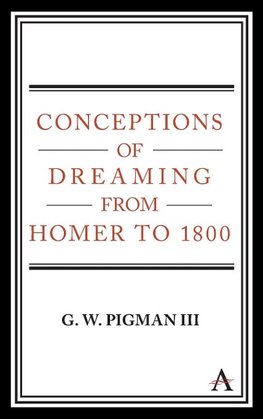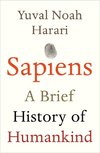
-
 Anglický jazyk
Anglický jazyk
Conceptions of Dreaming from Homer to 1800
Autor: G. W. Pigman III
Byron's designation of the dream as 'the mystical usurper of the mind' captures two aspects of its perennial fascination. Dreams are mysterious and they take possession of our minds as if they had an irresistible power of their own. The usurpation of the... Viac o knihe
Na objednávku
193.41 €
bežná cena: 214.90 €
O knihe
Byron's designation of the dream as 'the mystical usurper of the mind' captures two aspects of its perennial fascination. Dreams are mysterious and they take possession of our minds as if they had an irresistible power of their own. The usurpation of the mind by dreams has contributed to the belief that they accurately and supernaturally predict the future, reveal things unknown in the present or warn the dreamer to do or not to do something. This kind of dream goes by many names - admonitory, divinatory, precognitive, veridical, and prophetic - and even today most people believe in it. 'Conceptions of Dreaming from Homer to 1800' presents the history of conceptions of dreaming in Europe from Homer to the turn of the nineteenth century, the long period in which the admonitory dream was the centre of learned and popular interest.
By the end of the eighteenth century many researchers were interested in the dream as a psychological event rather than as a portent of the future. More of them were ceasing to ask what dreams are and how they work and asking instead which dreams reveal the future, how and their interpretation. In broader terms, western European thinking about dreams up to 1800 was primarily concerned with what they might mean or reveal. Although revelation of the future was the most common kind of significance, dreams were also thought to reveal the health of the dreamer, their wishes, character and daily pursuits. Hence the overwhelming concern with classifying dreams as significant (requiring attention) or insignificant (safe to ignore). Since the second half of the eighteenth century witnessed an important shift in the study of dreams, the period from Homer to the turn of the nineteenth century should be taken as a whole - the period of the admonitory dream. During this period the admonitory dream was accepted, questioned or rejected. But it was rarely ignored or simply mentioned as a historical curiosity, as increasingly happened in nineteenth-century scholarly and scientific discourse.
'Conceptions of Dreaming from Homer to 1800' traces the history of ideas about dreaming during the period in which the admonitory dream was the main focus of learned interest - from the Homeric epics through the Renaissance - and the period in which it begins to become a secondary focus - the eighteenth century. The book also considers the two most important dream theorists at the turn of the twentieth century, Sigmund Freud and Sante de Sanctis. While Freud is concerned with the old questions of what a dream means and how to interpret it, De Sanctis offers a synthesis of nineteenth-century research into what a dream is and represents the Enlightenment transition from particular facts to general laws.
- Vydavateľstvo: Anthem Press
- Rok vydania: 2019
- Formát: Hardback
- Rozmer: 235 x 157 mm
- Jazyk: Anglický jazyk
- ISBN: 9781783088881






 Ruský jazyk
Ruský jazyk 





